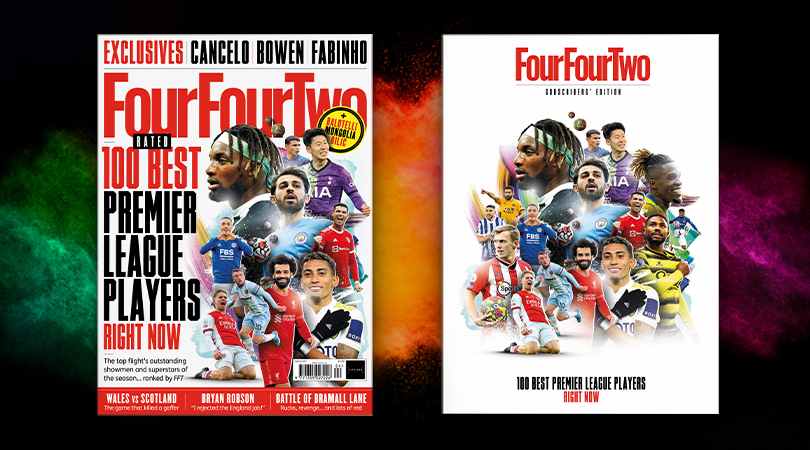Ranked! The 10 greatest Liverpool sides of all time
From Shankly's superstars to Klopp's gegenpressers, we rank the greatest Reds sides of all time
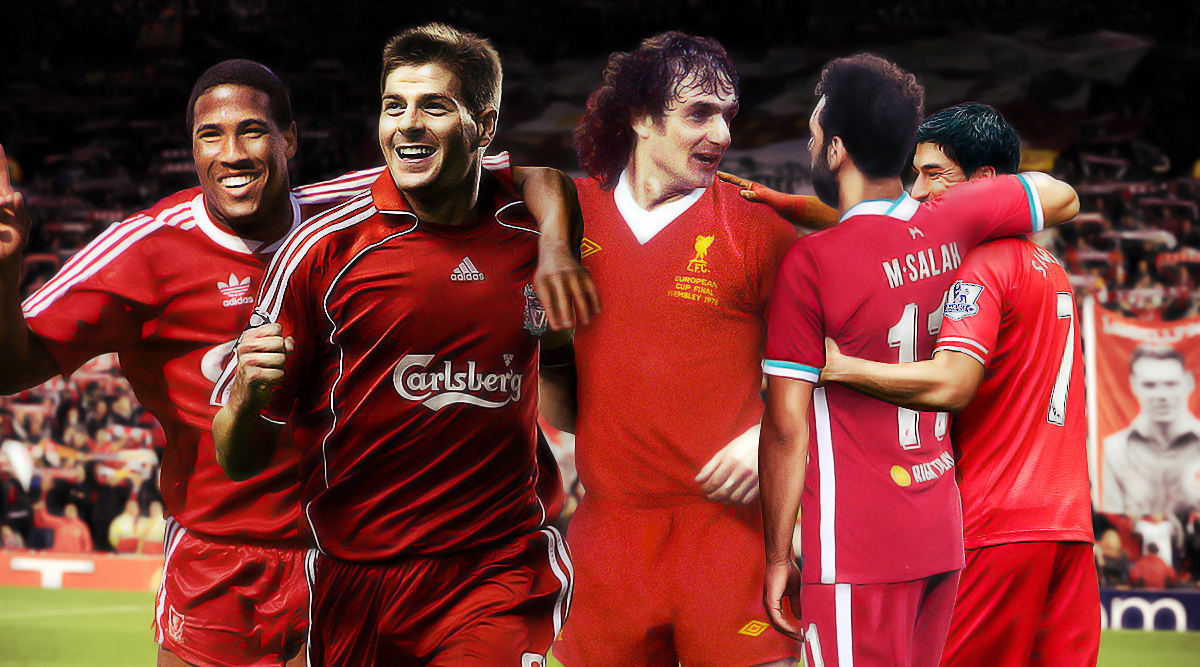
Ranking the greatest Liverpool sides of all time is no easy feat. How do you compare the current brilliance of Mohamed Salah, Sadio Mane and Virgil Van Dijk to likes of Kevin Keegan, Ian Rush, Kenny Dalglish and Big Ron Yeats?
READ NEXT The greatest Manchester United sides of all time
Despite that fact, we have tried our best to knock Liverpool's great teams of the past into a definitive list. A couple of factors have helped inform our opinion.
Liverpool are, of course, one of the most successful teams in English football history, but we have tried not to base our list solely on titles won. While there is certainly a preference for the most successful sides, we've thrown in a couple of teams that thrilled fans with their phenomenal football before ultimately failing short in come competitions.
So, without further ado, here are our best Liverpool teams ever...
10. 1995/96
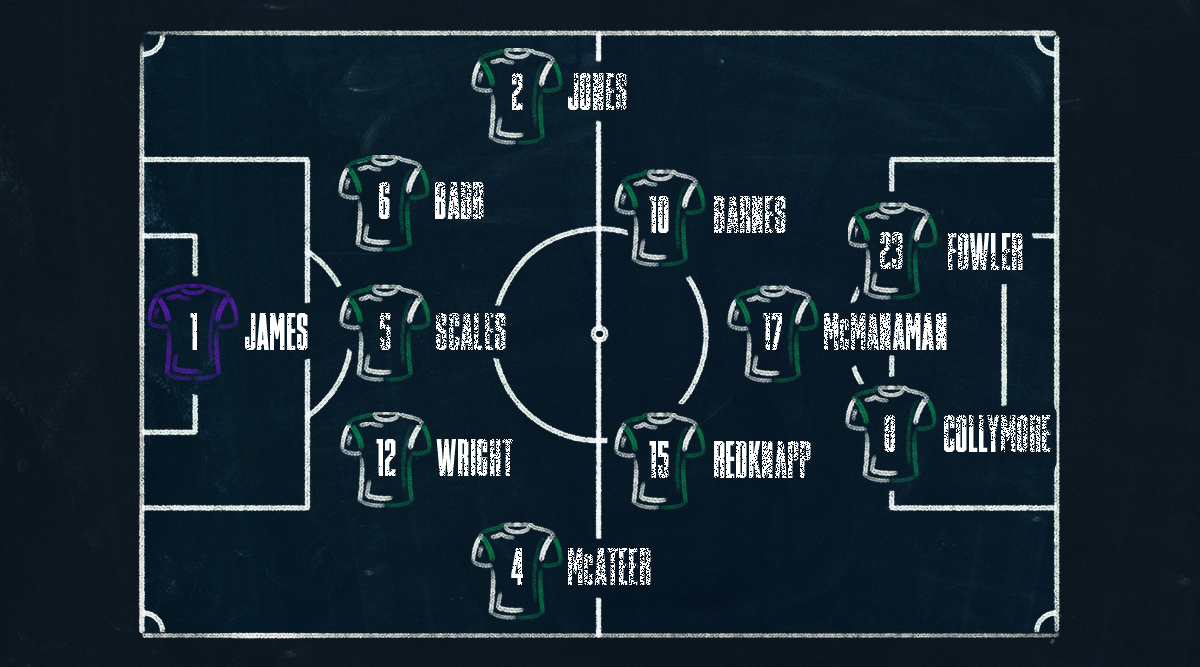
Runners-up: FA Cup
The 1995/96 season represented something of a sliding doors moment in English football. Manchester United had established themselves as a dominant force under Alex Ferguson, but Liverpool’s League Cup triumph the previous campaign suggested a talented group were capable of challenging for major titles.
Get FourFourTwo Newsletter
The best features, fun and footballing quizzes, straight to your inbox every week.
A three-way battle for the championship was expected, with Kevin Keegan’s Newcastle also tipped for success after a strong start to the season. Yet it was Liverpool who were the most tactically intriguing of the trio.
Roy Evans was a flexible coach who regularly got the better of Ferguson on the day. The Reds drew 2-2 at Old Trafford early in the campaign before a thrilling 2-0 win at Anfield in December, with Ferguson particularly flummoxed by how to shackle Steve McManaman drifting wide and dropping deep from his no.10 position. The England winger was given a free role in both games, floating behind Robbie Fowler and Stan Collymore and wreaking havoc with his dribbling.
A solid back-three provided cover behind pass-machine Jamie Redknapp and the experienced John Barnes; the once mesmerising winger now an old master at the base of midfield.
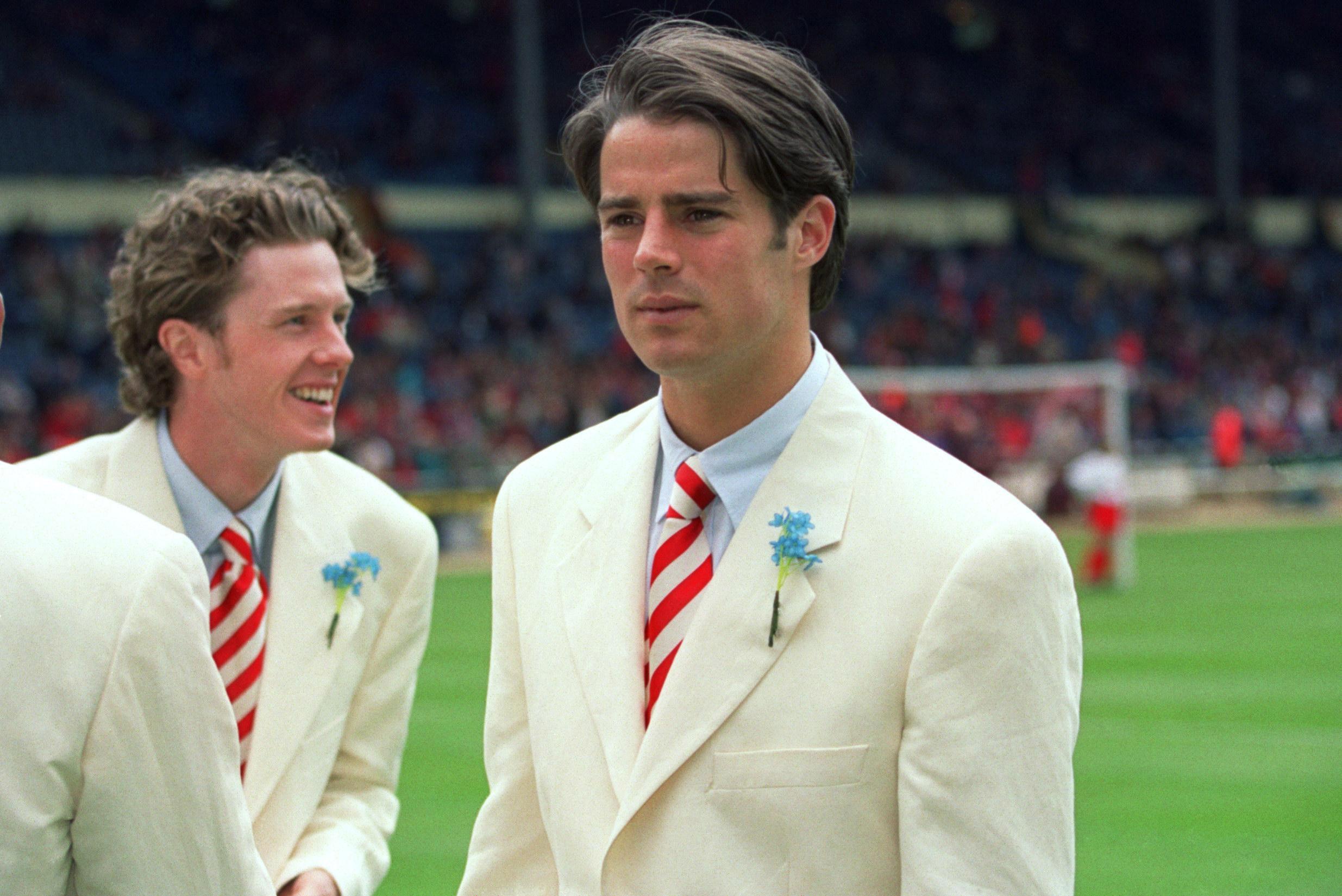
At this stage, before injuries took their toll, Fowler was an utterly jaw-dropping striker - a player who had no doubt about his god-given talents. He scored a ridiculous 28 goals in the league in the 95/96 season, with a further eight plundered in the cups.
Alas, Liverpool would only finish the season in third-place, behind both the Magpies and champions Manchester United, before a 1-0 loss to the latter in the FA Cup Final. The cream Armani suits worn to Wembley ahead of kick-off were seen as evidence of the team’s preference for style over substance, and it wasn’t long before the ‘Spice Boys’ tag began to weigh heavy.
An ultimately disappointing season, but one which showcased Liverpool at their entertaining best.
9. 2004/2005
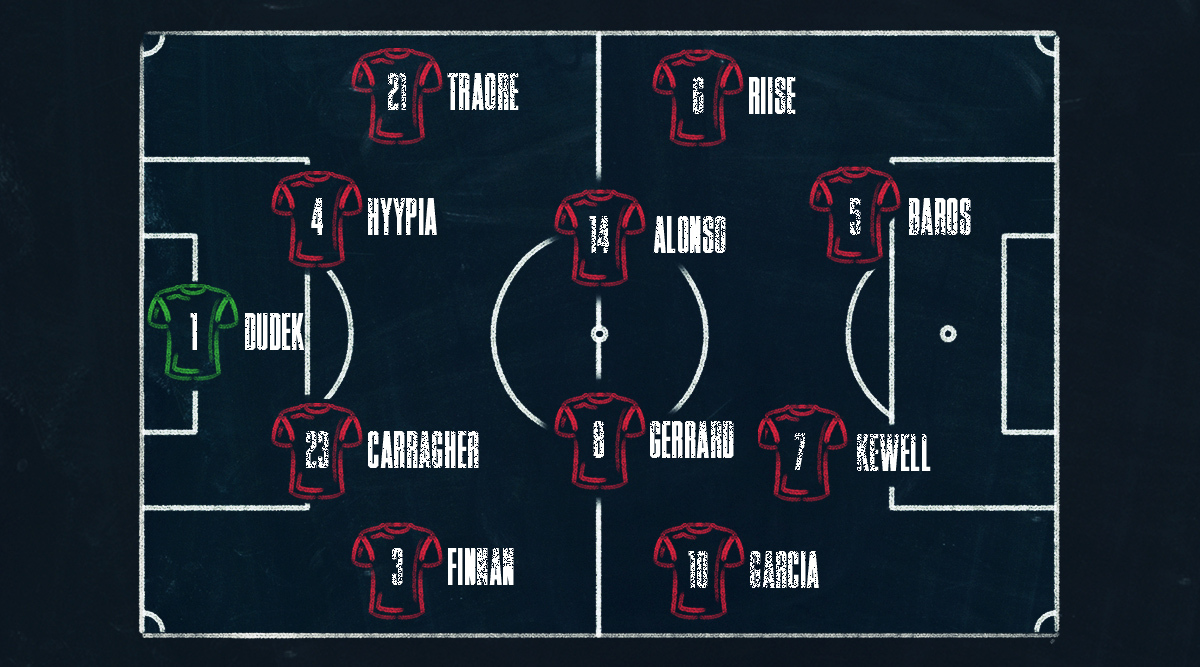
Titles: Champions League
Rafa’s Reds might have fallen short in the Premier League, but there was no denying their pedigree in the cups. The Spaniard’s first season in charge of Liverpool saw them lift the biggest of them all.
Liverpool’s cup form was largely down to Rafa’s supreme tactical acumen; arguably better suited to nullifying stronger opponents than overcoming smaller teams. Following the former Valencia gaffer’s arrival, Jamie Carragher was converted into a powerful central defender - from committed utility man - while the signings of La Liga midfielders Luis Garcia and Xabi Alonso added star quality to a squad more used to outrunning opponents than outthinking them.
The driving force in the side remained Steven Gerrard, however; the club’s talismanic captain and box-to-box midfielder. Gerrard's display in the final was inspirational, as Liverpool overturned a 3-0 deficit before defeating a world class Milan side on penalties.
Nowhere near the best in terms of man-to-man quality - as evidenced by a fifth-placed Premier League finish - but this team could play like giants when required.
8. 1963/64
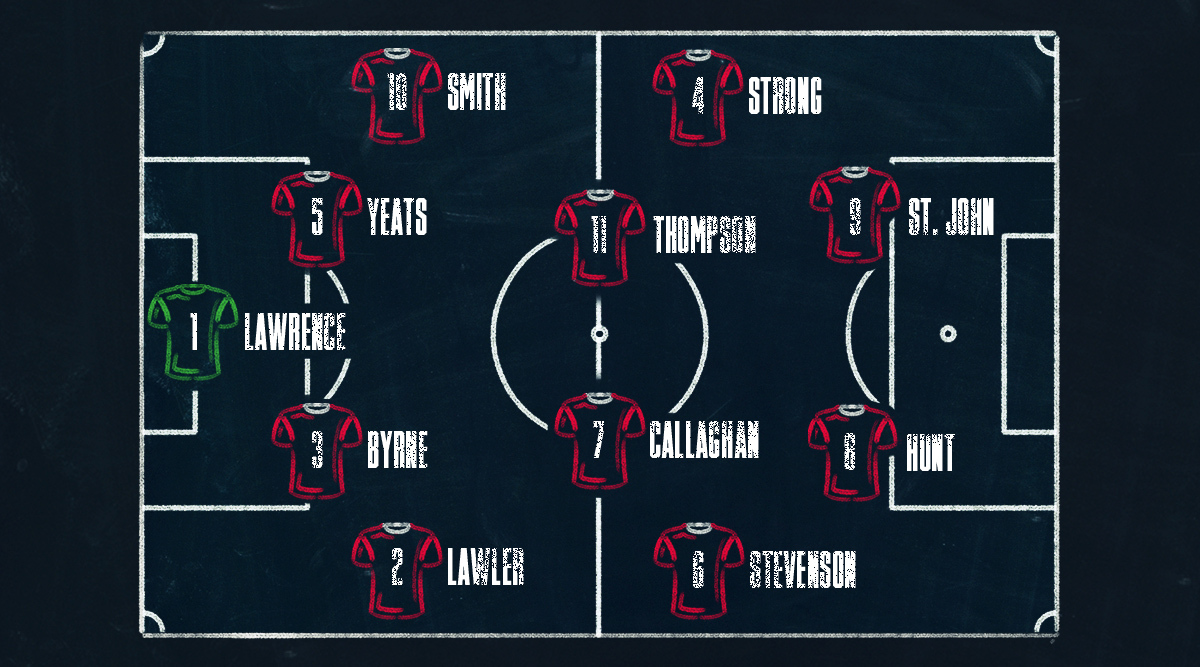
Titles: Division One
The year Liverpool completed their transformation from bang average second-divisioners to champions of English football… all thanks to one man.
Five years before the 1963/64 triumph, a little known Scottish manager was persuaded to swap Huddersfield Town for second-tier rivals Liverpool. Bill Shankly could see the potential in a team that hadn’t won an English title since 1947 - and set about revamping an ageing squad.
ALSO READ The Curlett Cup: Liverpool's greatest trophy you've never heard of
By the summer of ‘63, all the ingredients were there. In Tommy Lawrence, Big Ron Yeats, Ian Callaghan and Roger Hunt, the Reds boasted the best spine in English football. Hunt’s 29 strikes helped Liverpool to a then-record 92 top-flight goals, as Shankly’s unstoppable Reds clinched the title ahead of Manchester United.
It would prove to be the start of a quite remarkable era for the red half of Merseyside, much of it coming under the stewardship of the great Scot.
7. 1987/88
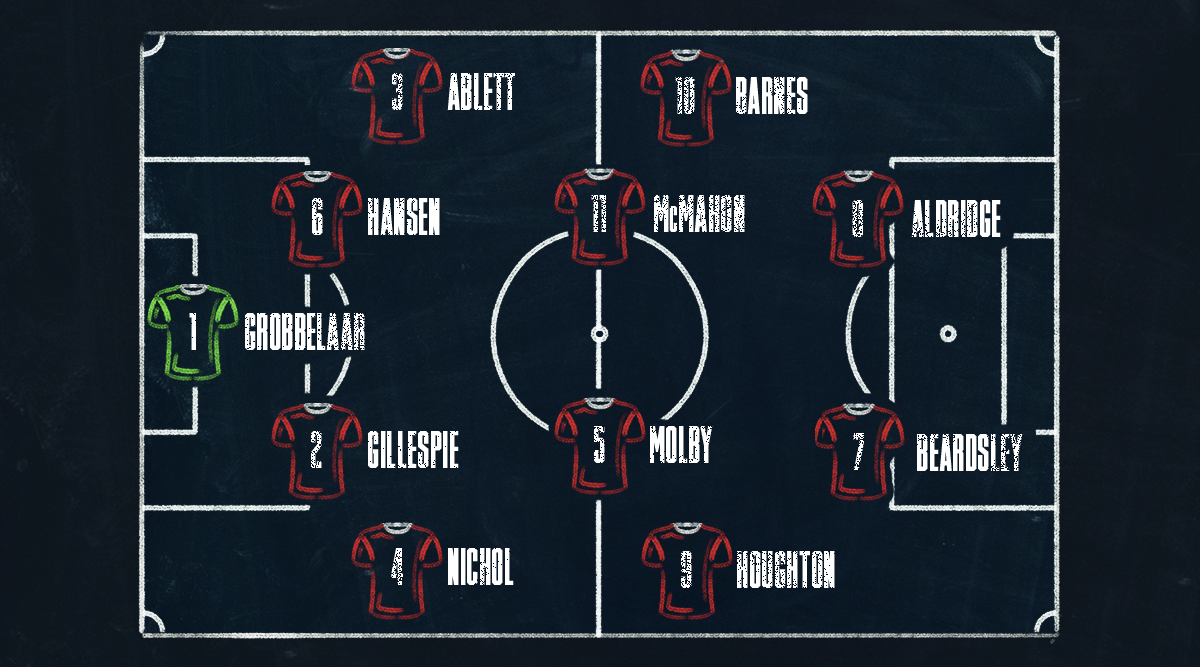
Titles: Division One
After finishing second the previous season, and losing Ian Rush to Juventus in the summer, player-manager Dalglish knew he had to strengthen his attack. The Scot had already acquired Oxford striker John Aldridge – who would go on to become the team's top goalscorer with 29 in all competitions that year – before bringing in Peter Beardsley from Newcastle and John Barnes from Watford. It's hard to think of a better transfer window in the club's history.
Maradona aside, Barnes had a case for being the best dribbler in the world in the late 80s, while Beardsley coupled audacious vision and close control with the work rate of a sled dog. Aldridge was always going to have a field day with those two and Jan Molby about.
The revamped team made a barnstorming start to the Division One season, with a 29-game unbeaten run stretching from August to late March – local rivals Everton eventually getting the better of them at Goodison Park. They would seal the title nine points clear of Manchester United before facing underdogs Wimbledon in the FA Cup final.
What happened at Wembley is overplayed – Wimbledon had finished 7th in the top-flight that season – but it was still a shock given the disparity between the two squads. While many football fans like to say Liverpool couldn't hack the Dons' roughhousing, that narrative ignores the fact Liverpool a group of players that very much liked it up them. Still, football is full of surprises and the Reds crumbled when the double had been within their grasp. This remains an excellent team, nonetheless.
6. 2000/01
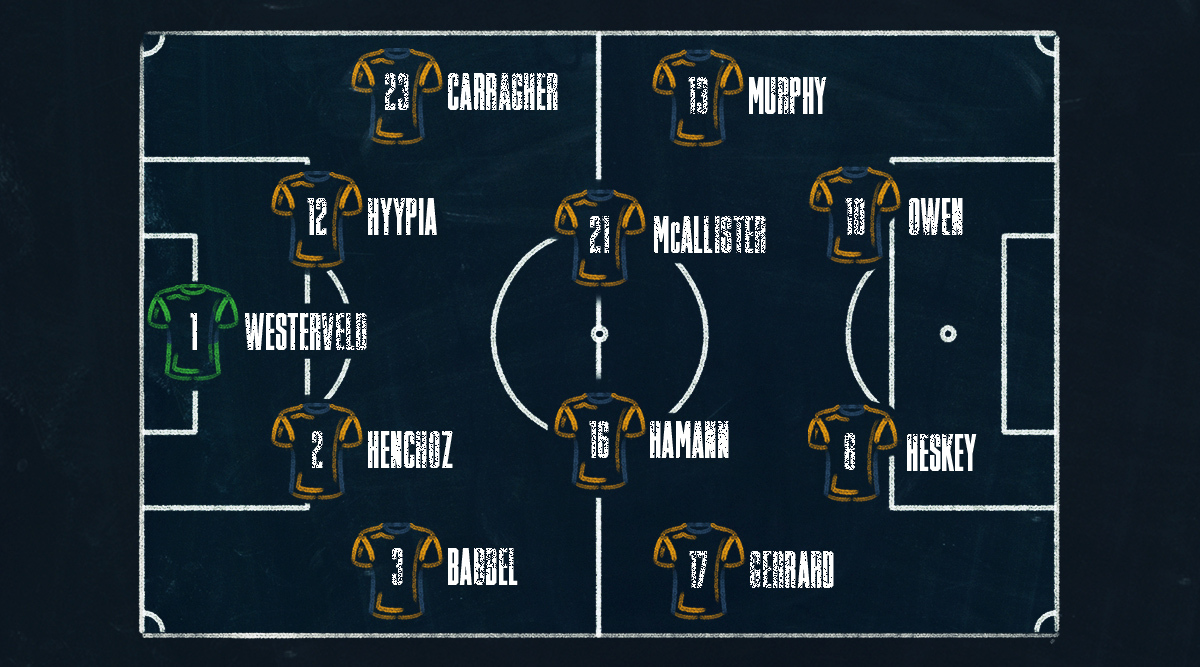
Titles: FA Cup, League Cup, UEFA Cup
All three of the FA Cup, League Cup and UEFA Cup were claimed for the first and only time in the history of English football by this beautifully balanced team.
Gerard Houllier’s Reds were the definitive knockout competition side (they managed only third in the Premier League that year), with a formidable blend of experienced pros, including 35-year old playmaker Gary McAllister pulling the strings from midfield, and a clutch of talented local lads.
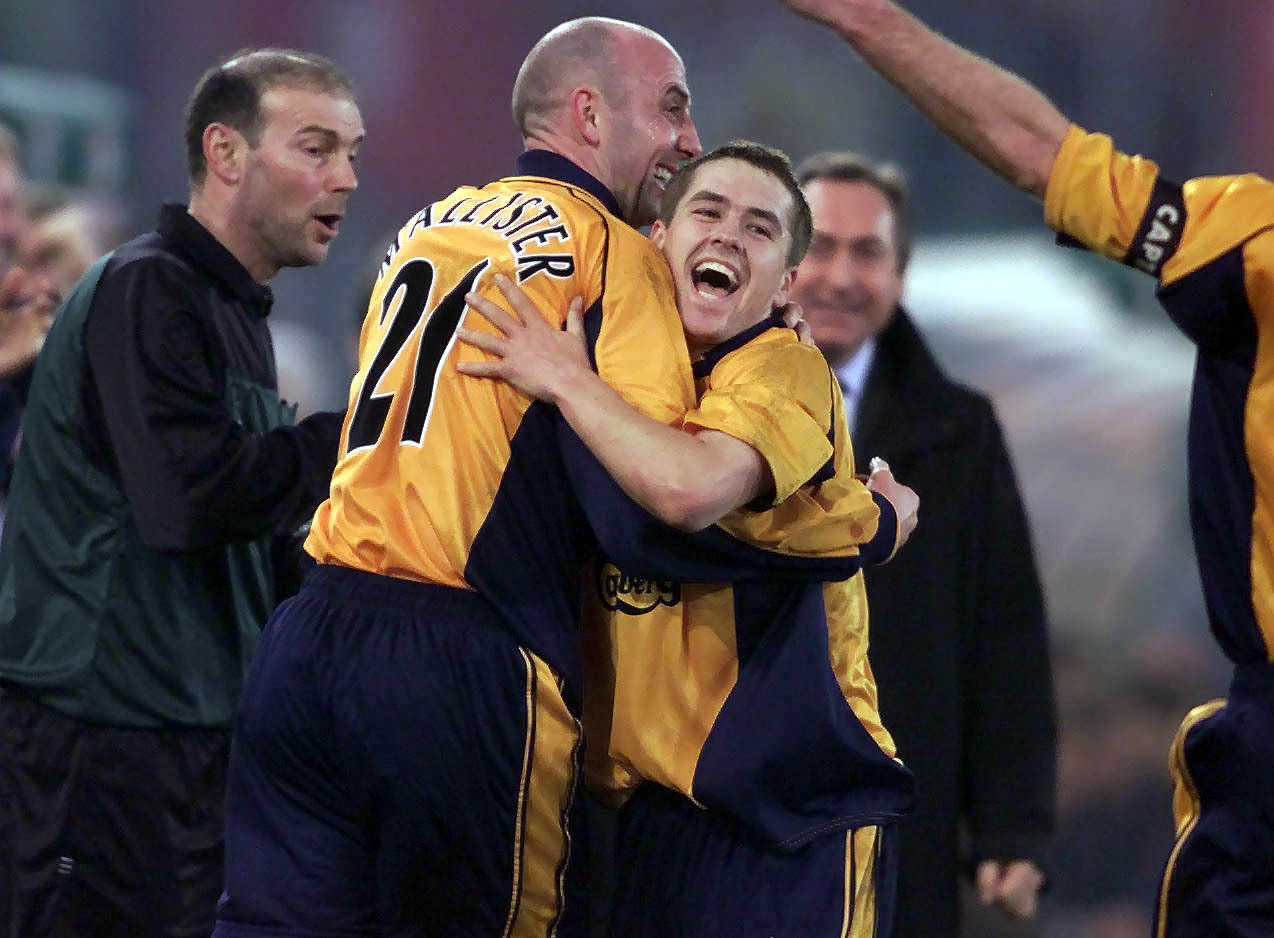
Jamie Carragher, Steven Gerrard, Danny Murphy, Robbie Fowler and Michael Owen had all come through the youth ranks, and each played a key role in those triumphs.
The pick of the bunch was a 21-year old Owen, who bagged a Ballon d’or for his goal-scoring exploits at the end of 2001. He scored both goals in the FA Cup final in a 2-1 comeback win over Arsenal and once in Liverpool’s breathless 5-4 UEFA Cup Final win over Alaves. He was probably never this good again...
5. 1985/86
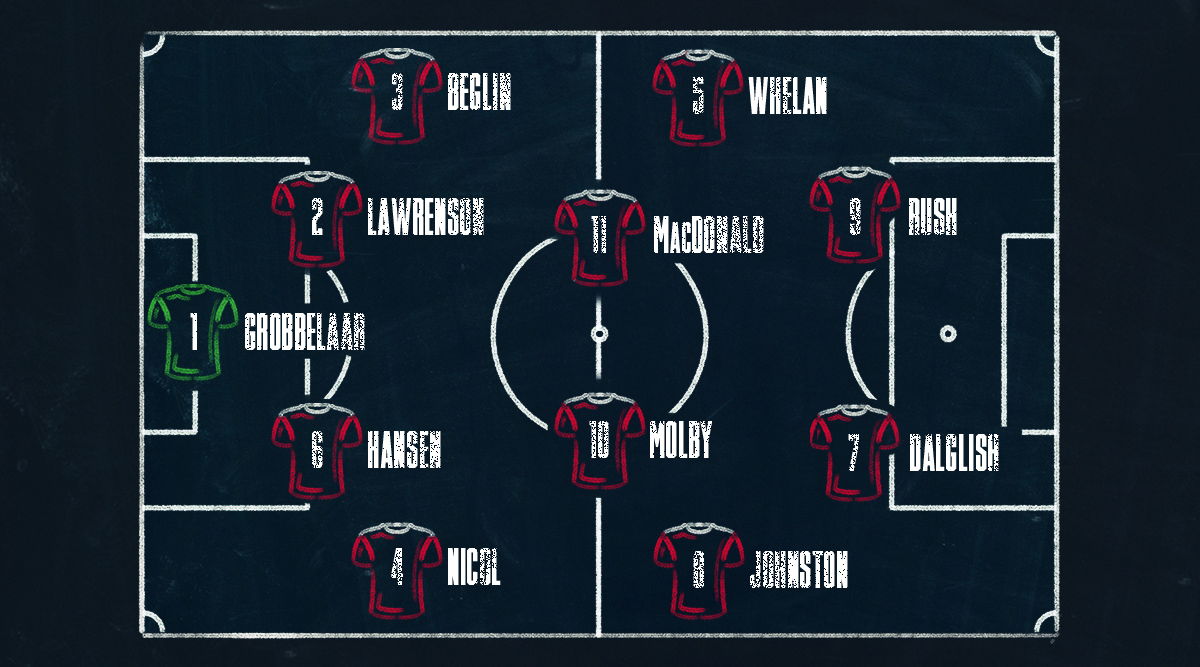
Titles: Division One, FA Cup
With King Kenny now player-manager, the Reds claimed a league and FA Cup double in what would be the final year for two key players. Ian Rush would depart for Juventus (before returning a year later) while stalwart Sammy Lee was sold to QPR.
By this stage in the mid-80s, Merseyside was the powerhouse of British football. Margaret Thatcher’s privatisation measures had left thousands in the city out of work, but Liverpool and Everton were dazzling fans with some of the best football in Europe.
The Heysel Disaster, which had taken place at the end of the previous season, meant English clubs were banned from European competition. The two halves of the city were therefore left to battle it out for domestic glory.
Twenty-two league goals from Rush helped Liverpool to the title - edging their cross-city neighbours on the final day thanks to a Dalglish winner at Stamford Bridge - while the FA Cup Final saw the clubs face-off at Wembley a few weeks later. A brace from Rush helped overturn Gary Lineker’s first half strike, as Liverpool sealed the double with a 3-1 win.
An historic campaign was also notable for Dalglish handing regular games to a 21-year-old Jan Molby. The Dane was often deployed in a hybrid sweeper/midfielder role, moving between defence and midfield intelligently. Molby’s extremely casual playing style and sensational technical ability proved an instant hit with fans, and proved invaluable in Dalglish’s system.
4. 1972/73
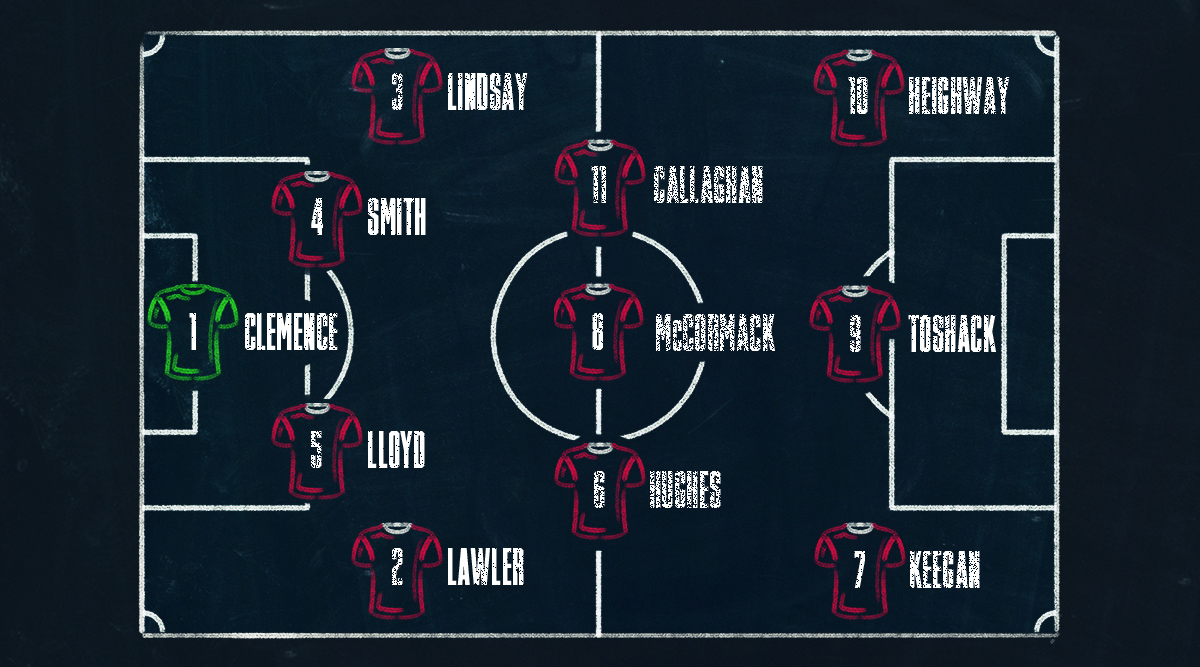
Titles: Division One, UEFA Cup
With Liverpool’s glorious early-60s period now a distant memory, Shankly was desperate to re-establish his side as a force in English football. The club’s most recent success had come way back in '66, the last time they were crowned English champions.
Young goalkeeper Ray Clemence and talented 21-year-old forward Kevin Keegan had become regulars in the side by now, but it was the signing of Peter Cormack from Nottingham Forest in the summer of ‘72 that really made the side tick.
Cormack was a tenacious playmaker, who was just as happy beating a marker as he was snapping into tackles. The Scotsman became the heartbeat of a side that would pip Arsenal to the title by three points.
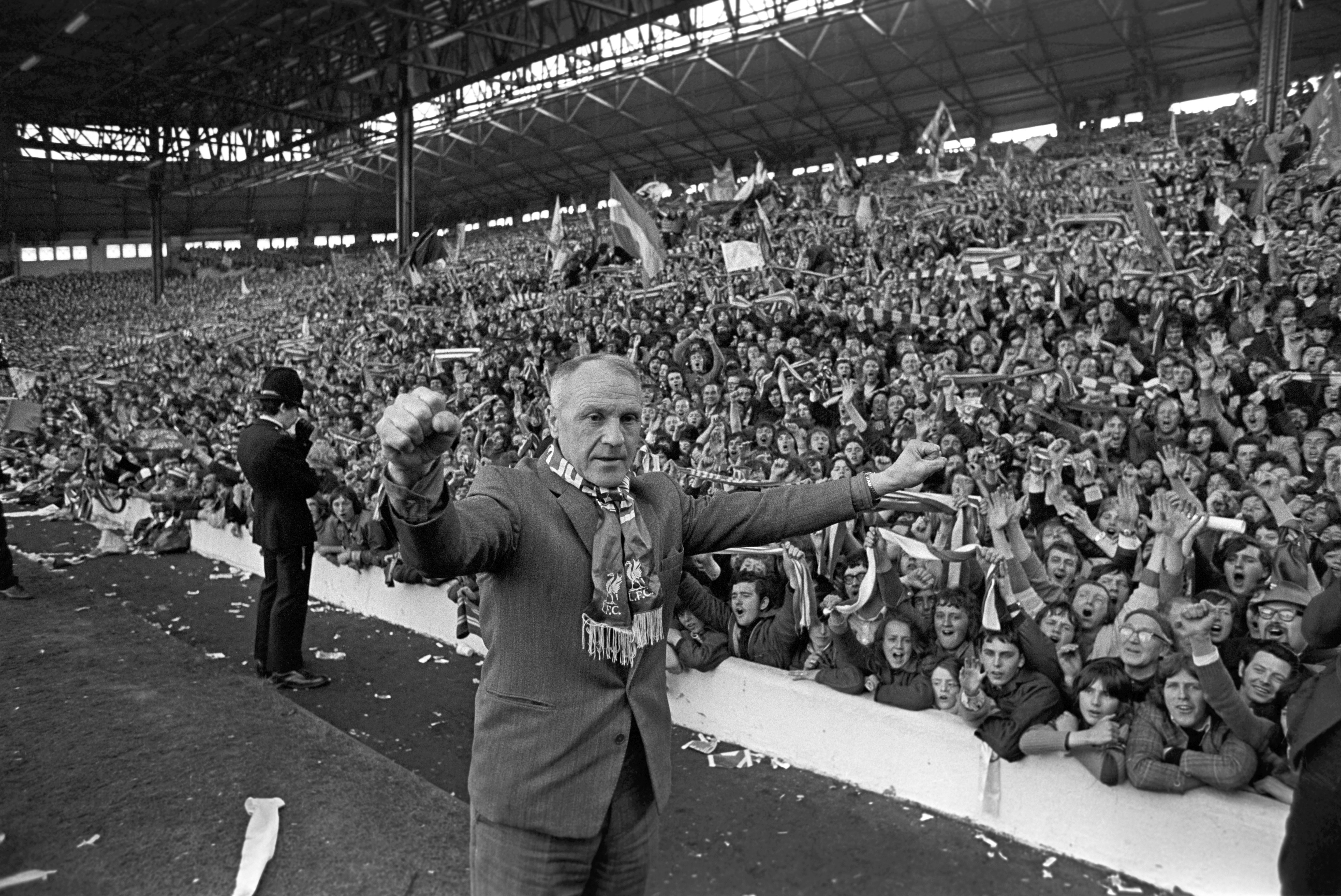
Further glory came in the UEFA Cup Final, with Liverpool defeating German outfit Borussia Monchengladbach 3-2 over two legs. With the first match initially rained-off after just 27 minutes, Shankly was given a brief insight into how the opposition played. He noticed Gladbach central defender Gunter Netzer was weak in the air, and so deployed the burlier John Toshack in place of Brian Hall up front for the rearranged fixture. It made a key difference that would eventually win them the trophy.
If ever a reminder of just how special Shankly was, this season was it.
3. 2018-2021
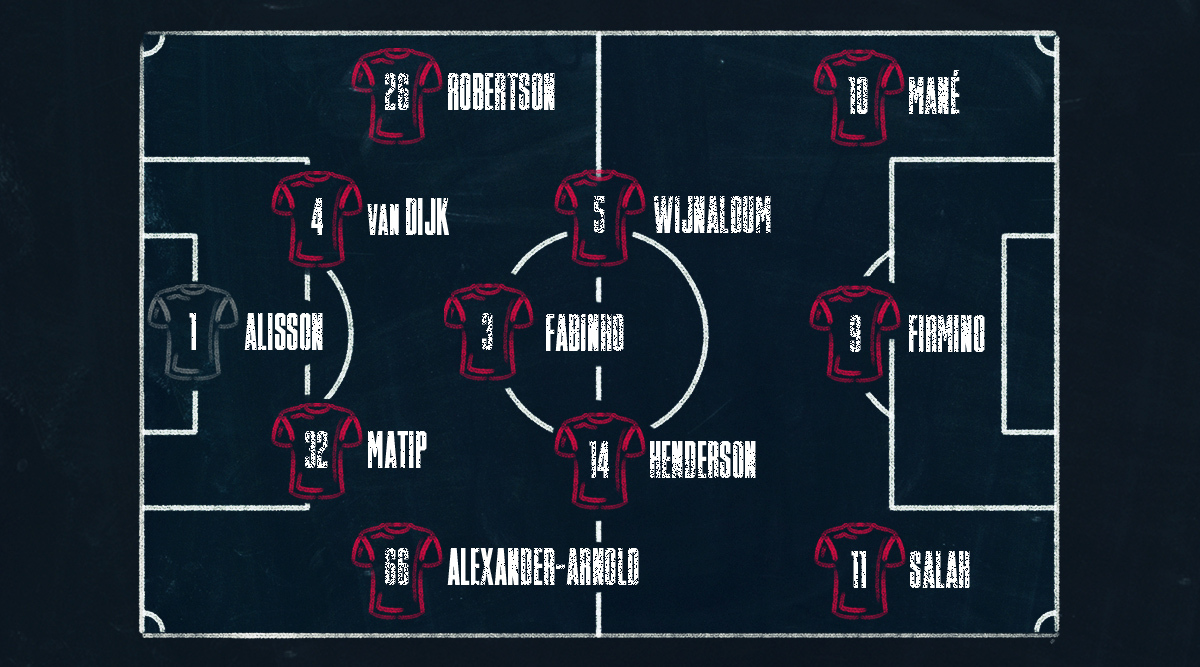
Titles: Premier League, Champions League
It’s rare a team makes absolutely no changes to its best XI across several glittering campaigns, but Liverpool’s recent crop are an exception to the rule.
The team that lost the 2018 Champions League final was given one key upgrade the following summer, with goalkeeper Alisson Becker replacing the unreliable Loris Karius. Otherwise, this XI - barring the odd injury or suspension - played through the next three seasons.
Jurgen Klopp’s relentless Gegenpressing philosophy relies on the workrate and fitness of the whole team when out of possession - and the killer instinct to capitalise on the resulting chaos once the ball is won back. In Mohamed Salah, Roberto Firmino and Sadio Mane, Klopp has assembled the the best front line in Europe, bar none.
The 2019 Champions League title was sealed against Spurs in Madrid following a bitterly disappointing finish to the Premier League season. The Reds had amassed 97 points - enough to have won the title 116 times out of the preceding 119 seasons - but fell short to rivals Manchester City by a single point.
The 2019/20 campaign saw them win their first title in 30 years thanks to a 99-point haul, as Reds fans breathed a collective sigh of relief that the long wait was over.
2. 1976/77
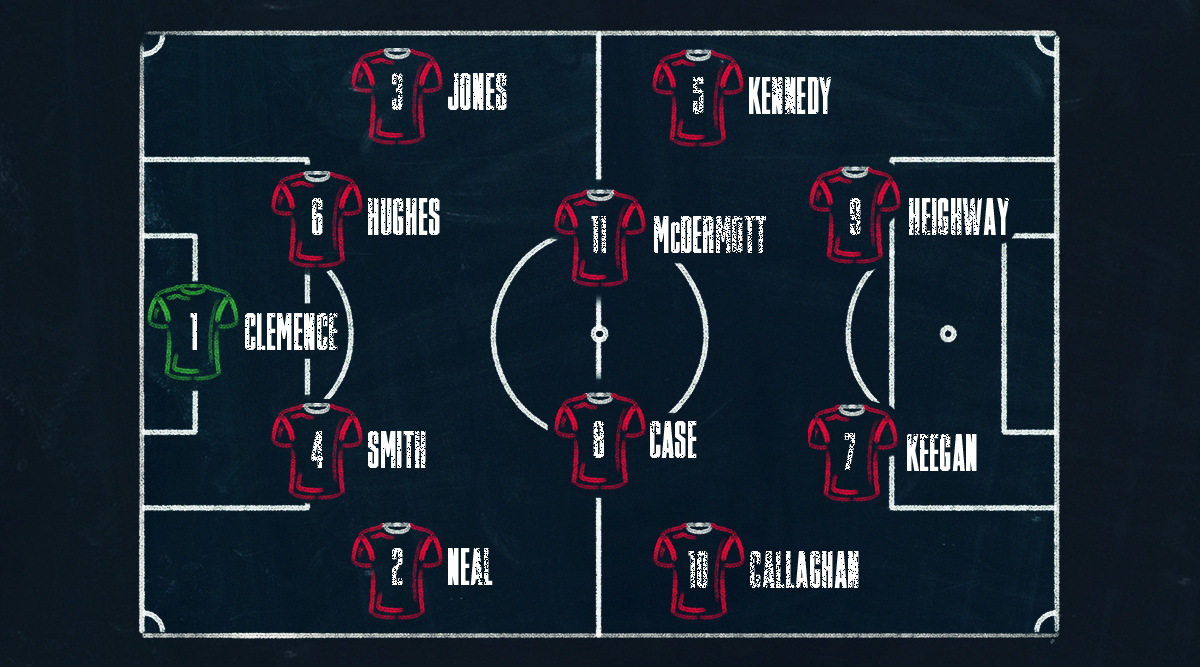
Titles: Division One, European Cup
Liverpool had won the English title in Bob Paisley’s second season in charge, but Shankly’s successor and former assistant truly announced himself in his third season.
But for a disappointing showing against the Red Devils in the FA Cup Final, Liverpool would have sealed the biggest treble 22-years ahead of United's 1999 vintage. Alas, a 2-1 loss at Wembley meant league champions Liverpool could only(!) secure a double four days later in Rome. A 3-1 win over old foes Gladbach gave Liverpool the first of their six European crowns to date.
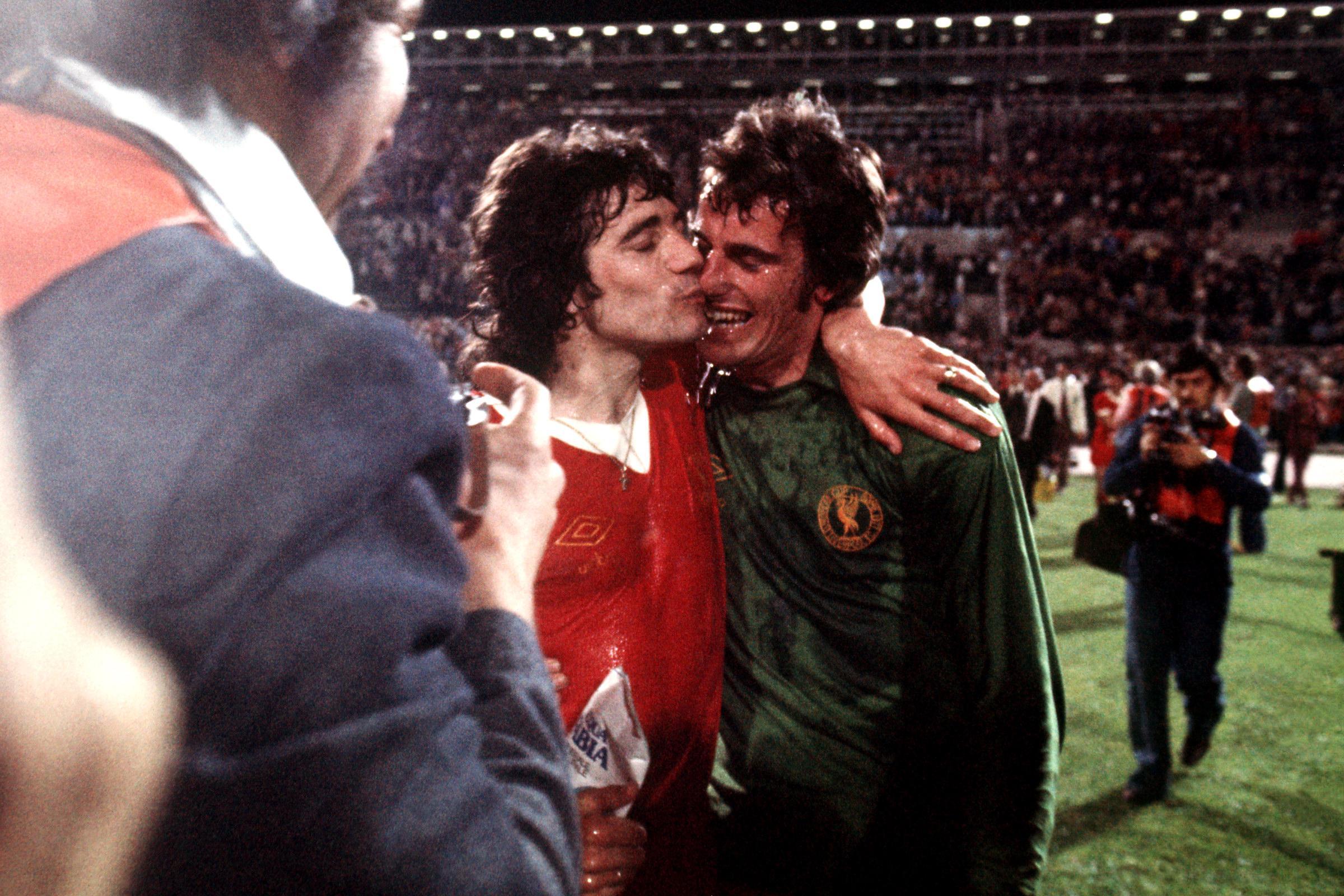
The win would be Kevin Keegan’s last game for the club, as he sealed a British record £500,000 move to Hamburg weeks later. Paisley had been quietly plotting a new course for the club, however, with defender Alan Hansen signed from Partick Thistle in the midst of Liverpool’s trophy dash.
KEEGAN How Liverpool, Hamburg, Southampton and Newcastle fell Head Over Heels In Love with King Kev
A second-straight European Cup was sealed with largely the same team a year later, though domestic form left much to be desired.
1. 1983/84
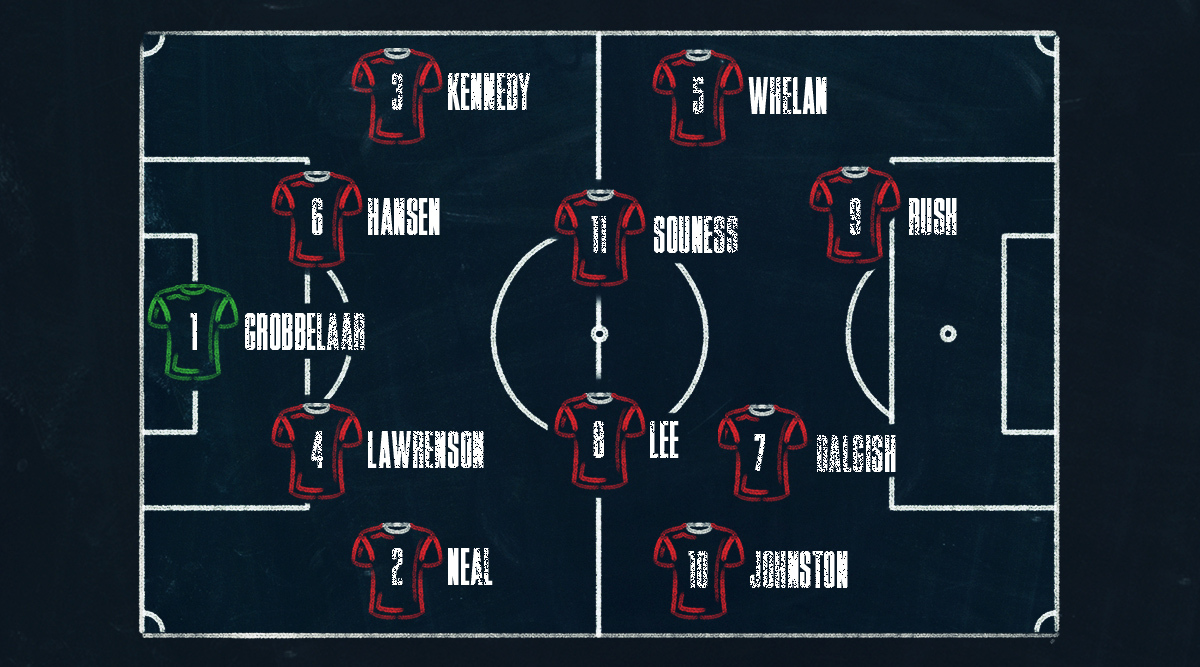
Titles: Division One, European Cup, League Cup
The greatest side in Liverpool history arrived immediately after Bob Paisley's incredible tenure came to an end.
It was Liverpool’s first season under new gaffer Joe Fagan, with pressure on the new man to deliver following the Paisley years. The transition could not have gone more smoothly, as a Division One, League Cup and European treble was delivered in style.
Bruce Grobbelaar was by now considered one of the safest pairs of gloves in British football - second only, perhaps, to cross town rival Neville Southall - while the back line was the perfect blend of silk and steel. Mark Lawrenson had proved himself a fierce central defender after joining from Brighton in the summer of ‘81, but it was the elegance of Hansen that ensured Liverpool could build from the back.
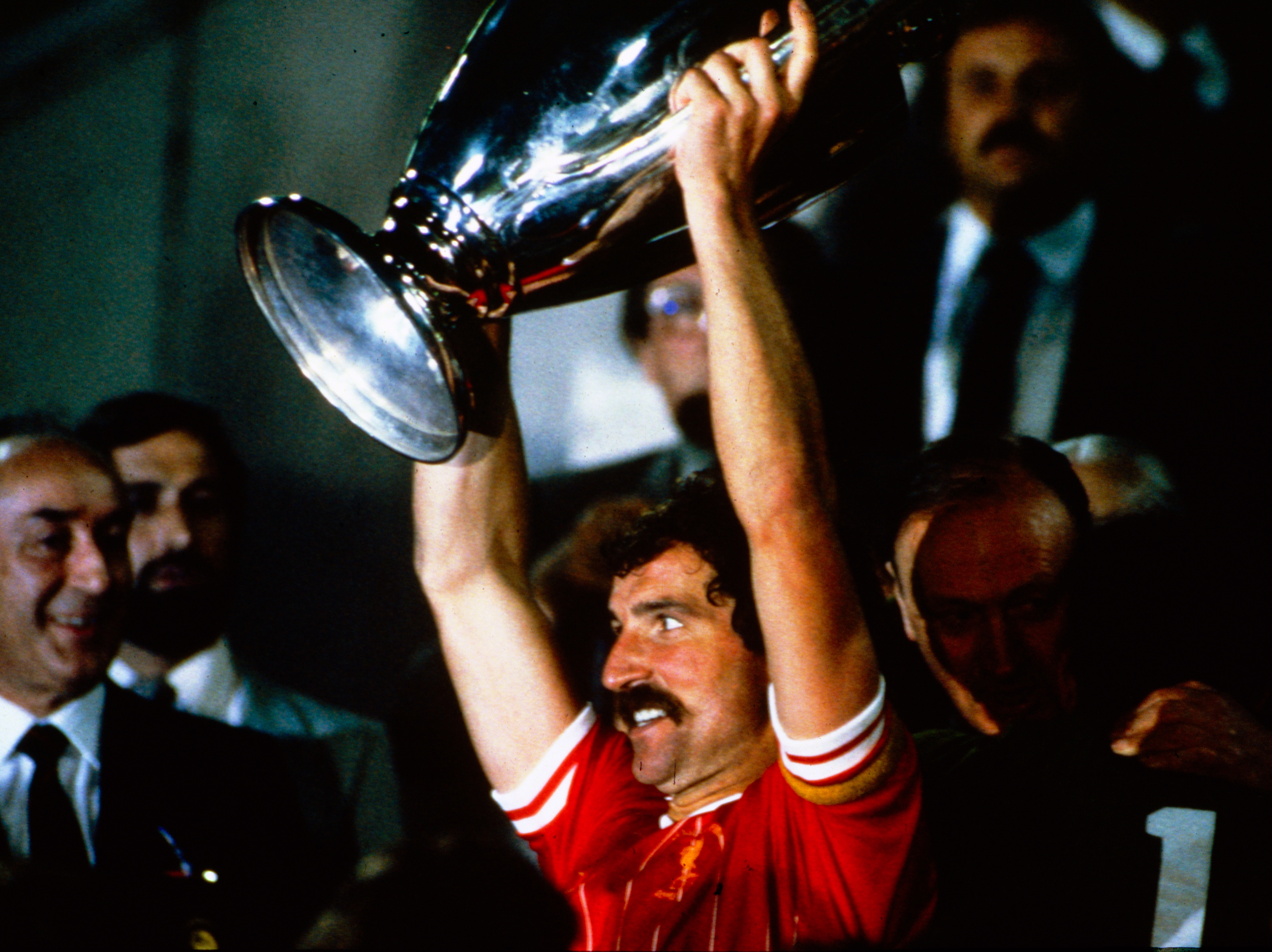
The midfield was rock-solid, with Graeme Sounness at his snarling, creative best in his final season before leaving to join Sampdoria, with the hardworking Craig Johnstone providing relentless energy beside him. Sammy Lee and Ronnie Whelan added guile from the wings, but it was the attack that really shone.
Dalglish was the archetypal supporting striker, while Ian Rush enjoyed his deadliest season ever. The Welshman hit 47 goals in all competitions, with 32 arriving in the top-flight and eight in the League Cup.
Liverpool’s remarkable treble was secured via a penalty shootout win over Roma in the Italians' own backyard. A stunning achievement for a truly world class team. Together, there was no storm through which they couldn't walk.
Subscribe to FourFourTwo today and save over a third on shop price
Restock your kit bag with the best deals for footballers on Amazon right now
ALSO READ
DECISIONS, DECISIONS What are Marcus Rashford's options if he does leave Manchester United?
PACKED BAGS Which players will leave Manchester United? 10 players who could be off before next season
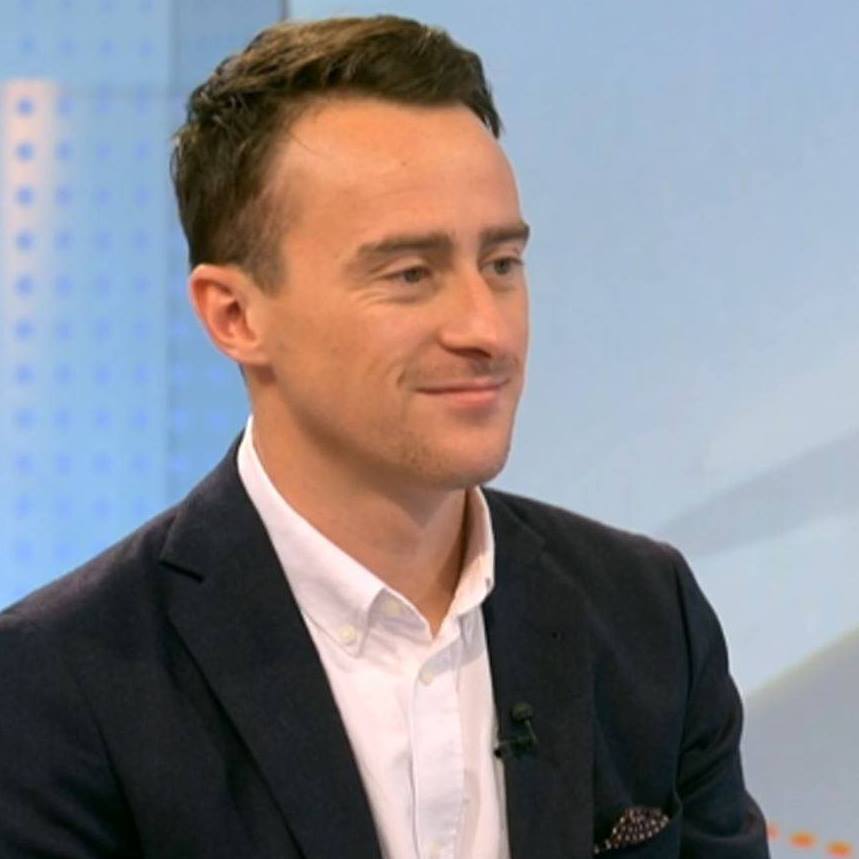
Ed is a staff writer at FourFourTwo, working across the magazine and website. A German speaker, he’s been working as a football reporter in Berlin since 2015, predominantly covering the Bundesliga and Germany's national team. Favourite FFT features include an exclusive interview with Jude Bellingham following the youngster’s move to Borussia Dortmund in 2020, a history of the Berlin Derby since the fall of the Wall and a celebration of Kevin Keegan’s playing career.
